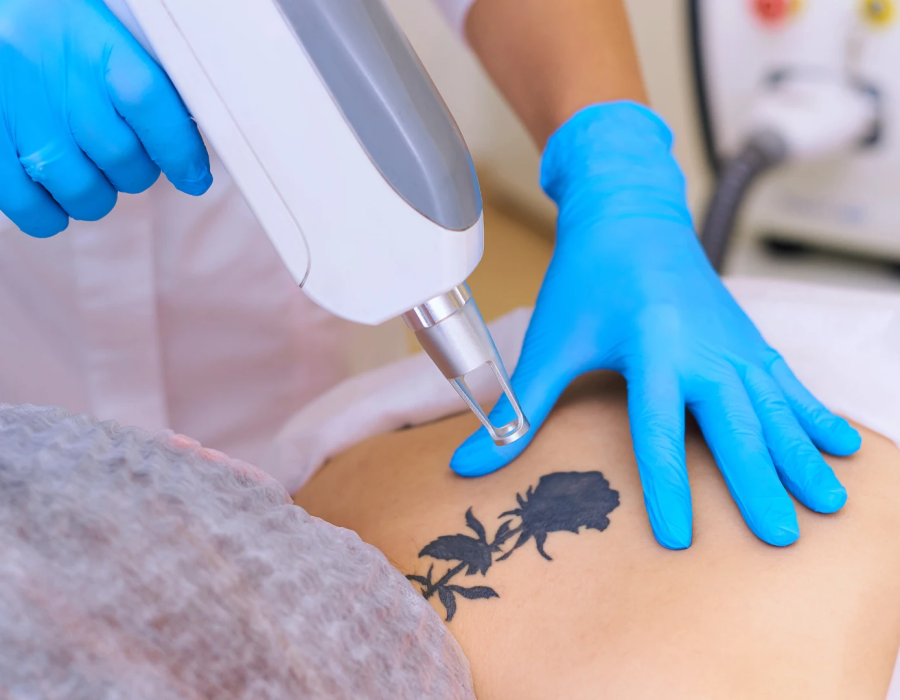Tattoo removal has become a popular cosmetic procedure in recent years, especially for individuals who regret their tattoos or simply wish to remove them for various reasons. However, when it comes to laser tattoo removal, individuals with darker skin tones might be concerned about the safety and effectiveness of the procedure. In a city like Dubai, where people of various ethnicities and skin types reside, understanding Tattoo Removal Dubai works for dark skin is crucial. This article explores the safety of laser tattoo removal for dark skin in Dubai, without focusing on specific clinics, costs, or side effects.
Understanding Laser Tattoo Removal
Laser tattoo removal involves the use of high-intensity light beams to break down the ink particles in the tattoo. These lasers target the tattoo pigments, causing them to fragment, which are then removed by the body’s natural processes. The technology has evolved significantly over the years, making it a popular option for many seeking tattoo removal. For individuals with darker skin tones, there are specific challenges and considerations that need to be taken into account to ensure the procedure is safe and effective.
Skin Types and Laser Tattoo Removal
The Fitzpatrick scale, which classifies skin tones into six categories based on their response to UV radiation, plays an important role in understanding how different skin types react to laser treatment. Darker skin, which falls under Fitzpatrick types IV to VI, absorbs more laser energy due to the higher melanin content. While melanin protects the skin from UV rays, it can also cause challenges during laser tattoo removal. This increased melanin absorption means that the laser energy intended for the tattoo ink can also affect the surrounding skin, potentially leading to complications such as hyperpigmentation or scarring.
Types of Lasers for Dark Skin
Not all lasers are equally effective or safe for dark skin. The technology used in laser tattoo removal has advanced, and today, there are specific lasers designed to cater to individuals with darker skin tones. One of the safest options for dark skin is the Q-switched Nd: YAG laser, which emits a longer wavelength that penetrates the skin without affecting the melanin in the epidermis as much as other lasers. This laser specifically targets tattoo pigments in the deeper layers of the skin while minimizing the risk to the surrounding skin. It’s crucial to ensure that the right type of laser is used for dark skin to achieve effective results while maintaining skin safety.
Professional Expertise Matters
While the technology and lasers have advanced, professional expertise is still paramount. The skill of the practitioner performing the laser tattoo removal is a significant factor in the safety and success of the procedure. Proper training and experience with dark skin types are essential, as the practitioner needs to adjust laser settings based on the individual’s skin tone and tattoo characteristics. In Dubai, where there is a large population with a wide range of skin tones, choosing an experienced professional who understands the nuances of treating darker skin is crucial. The practitioner will need to carefully evaluate the skin type, tattoo color, size, and location to determine the most appropriate treatment plan.

The Role of Skin Cooling Techniques
To further enhance safety, skin cooling techniques are often employed during laser tattoo removal procedures. Cooling mechanisms are important, especially for darker skin, as they can help minimize discomfort and protect the skin from overheating. Many modern laser systems include built-in cooling systems that maintain a safe temperature for the skin during treatment, reducing the risk of burns or pigmentation changes. These cooling methods work by lowering the skin’s temperature before and after the laser pulse, allowing for more energy to be focused on the tattoo ink without damaging the surrounding skin.
Potential Risks for Dark Skin
Though laser tattoo removal is generally safe for dark skin, it’s not without its risks. People with darker skin tones should be aware of the potential for complications such as hyperpigmentation or hypopigmentation. Hyperpigmentation refers to the darkening of the skin in the treated area, while hypopigmentation involves lightening of the skin. Both conditions are temporary in many cases, but they can be more noticeable on darker skin. The risk of scarring is also a concern, although with proper care and the right laser technology, the likelihood of permanent scarring is minimal. Ensuring that the skin heals properly after each session is vital, which is why it’s important to follow post-treatment instructions carefully.
Healing Process for Dark Skin
After the laser tattoo removal procedure, the healing process may vary depending on the individual’s skin type and how well they follow aftercare instructions. For dark skin, it is especially important to avoid sun exposure during the healing phase. Sunburns or excessive tanning can lead to further pigmentation issues or skin damage. Additionally, moisturizing the skin and avoiding harsh skincare products can help ensure proper healing. The practitioner may also advise using specific creams or ointments to soothe the skin and prevent any adverse reactions. As the body works to break down the ink particles, patience is key, as multiple sessions are often required to fully remove the tattoo.
Effectiveness of Laser Tattoo Removal for Dark Skin
Laser Tattoo Removal in Dubai is generally effective for dark skin, but it may require more sessions compared to lighter skin tones. The darker pigments in the skin can sometimes absorb more of the laser energy, which means the tattoo ink may take longer to break down. However, with the right type of laser and appropriate settings, significant progress can be made with each session. Some tattoos, especially those with certain colors like green or blue, may also take more time to remove, as these colors tend to be more challenging to break down. Nonetheless, with modern advancements in laser technology, even challenging tattoo colors can be effectively targeted, even on dark skin.
Importance of Post-Treatment Care
Post-treatment care plays a critical role in the safety and effectiveness of laser tattoo removal, especially for dark skin. Aftercare typically includes keeping the treated area clean, avoiding direct sunlight, and using healing ointments or creams. It is also important to avoid scratching or picking at the skin as it heals. For those with dark skin, it is recommended to use sunscreen consistently to prevent hyperpigmentation, which can occur if the skin is exposed to the sun after treatment. Adhering to these guidelines will help promote optimal healing and minimize the risk of any adverse reactions.
Conclusion
Laser tattoo removal can be a safe and effective option for individuals with dark skin in Dubai, provided the procedure is performed by a skilled and experienced professional using the appropriate technology. The key to ensuring safety lies in selecting the right laser, adjusting the settings to suit darker skin tones, and following proper aftercare instructions to support the healing process. Although there are risks involved, such as pigmentation changes or scarring, these can be minimized with the right precautions and professional guidance. By understanding how laser tattoo removal works for dark skin, individuals in Dubai can make informed decisions and achieve satisfactory results while prioritizing skin health and safety.






Comments